第132章
This King has also within his gates more than four thousand women,all of whom live in the palace;some are dancing-girls,and others are bearers[617]who carry the King's wives on their shoulders,and the King also in the interior of the palace,for the king's houses are large and there are great intervals between one house and another.He has also women who wrestle,and others who are astrologers and soothsayers;and he has women who write all the accounts of expenses that are incurred inside the gates,and others whose duty it is to write all the affairs of the kingdom and compare their books with those of the writers outside;he has women also for music,who play instruments and sing.Even the wives of the King are well versed in music.
The King has other women besides.He has ten cooks for his personal service,and has others kept for times when he gives banquets;and these ten prepare the food for no one save for the King alone.He has a eunuch for guard at the gate of the kitchen,who never allows any one to enter for fear of poison.When the King wishes to eat,every person withdraws,and then come some of the women whose duty it is and they prepare the table for him;they place for him a three-footed stool,round,made of gold,and on it put the messes.These are brought in large vessels of gold,and the smaller messes in basins of gold,some of which are adorned with precious stones.There is no cloth on the table,but one is brought when the King has finished eating,and he washes his hands and mouth.Women and eunuchs serve him at table.The wives of the King remain each in her own chamber and are waited on by maid-servants.It is said that he has judges,as well as bailiffs and watchmen who every night guard the palace,and all these are women.
The King never puts on any garment more than once,and when he takes it off he at once delivers it to certain officers who have charge of this duty,and they render an account;and these garments are never given to any one.This is considered to show great state.His clothes are silk cloths (PACHOIIS)[618]of very fine material and worked with gold,which are worth each one ten PARDAOS;and they wear at times BAJURIS of the same sort,which are like shirts with a skirt;and on the head they wear caps of brocade which they call CULAES,[619]and one of these is worth some twenty cruzados.When he lifts it from his head he never again puts it on.
The punishments that they inflict in this kingdom are these:for a thief,whatever theft he commits,howsoever little it be,they forthwith cut off a foot and a hand,and if his theft be a great one he is hanged with a hook under his chin.If a man outrages a respectable woman or a virgin he has the same punishment,and if he does any other such violence his punishment is of a like kind.Nobles who become traitors are sent to be impaled alive on a wooden stake thrust through the belly,and people of the lower orders,for whatever crime they commit,he forthwith commands to cut off their heads in the market-place,and the same for a murder unless the death was the result of a duel.For great honour is done to those who fight in a duel,and they give the estate of the dead man to the survivor;but no one fights a duel without first asking leave of the minister,who forthwith grants it.These are the common kinds of punishments,but they have others more fanciful;for when the King so desires,he commands a man to be thrown to the elephants,and they tear him in pieces.The people are so subject to him that if you told a man on the part of the King that he must stand still in a street holding a stone on his back all day till you released him,he would do it.
The officers of the King who go about the kingdom are these:--First the minister (REGEDOR)of the kingdom,who is the second person in it,then the treasurer,with the scribes of the King's own lands,[620]the chief treasurer,and the commander of the palace guards (OPORTEIRO MOOR),the treasurer of the jewels,the chief master of the horse.The King has no controller of the revenues nor other officers,nor officers of his house,but only the captains of his kingdom;of whom I will here mention some,and the revenues they hold,and of what territory they are lords,Firstly Salvanayque,the present minister;he has a revenue of a million and a hundred thousand gold PARDAOS.He is lord of Charamaodel and of Nagapatao,and Tamgor,and Bomgarin,and Dapatao,and Truguel,and Caullim,and all these are cities;their territories are all very large,and they border on Ceylon.[621]Of thismoney he is obliged to give a third to the King,and two-thirds remain for him for the expenses of his LASCARIS and horses,which he is obliged to maintain for the King,viz.:thirty thousand foot and three thousand horse and thirty elephants;so that he only gets the balance after deducting the expenses of this force.But in this way he acquires much wealth because he never maintains the whole force.And the King,whenever he wishes,takes away property of these nobles.
Another captain,Ajaparcatimapa,[622]who was minister of Crisnarao,has a revenue of eight hundred thousand PARDAOS of gold,and is lord of the city of Hudogary,[623]and of the city of Condovim,[624]and of the city of Penagundim,[625]and of Codegaral[626]of Cidaota.[627]All these large cities border on the kingdom of Oria,and some of them with Cape Comorin (CABO DE COMARY).These lands Crisnarao gave him when he made him minister and put out the eyes of Salvatinica,his minister,who was captain of them.He is obliged to serve with twenty-five thousand[628]foot,fifteen hundred horse,and forty elephants,and pays each year to the King three hundred thousand PARDAOS.
Another captain,who is called Gapanayque,is lord of these lands,namely of Rosyl,[629]and of Tipar,and of Ticalo,and of Bigolom.[630]